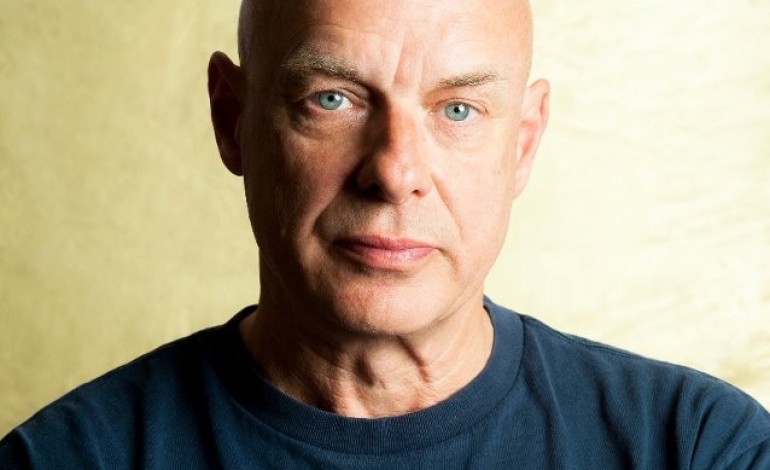 Enough has been written in the past about visionary Brian Eno’s constant and sterling attempts to present music as above and beyond art, a sort of transient, pliable tool for pretty much any given circumstance and the greatest conveyor of emotion. He’s certainly not the only musician to apply this as a rule of law, but in the several guises he’s assumed over the last four decades of recording, he has proven himself to be the most adept.
Enough has been written in the past about visionary Brian Eno’s constant and sterling attempts to present music as above and beyond art, a sort of transient, pliable tool for pretty much any given circumstance and the greatest conveyor of emotion. He’s certainly not the only musician to apply this as a rule of law, but in the several guises he’s assumed over the last four decades of recording, he has proven himself to be the most adept.
Reflection, however (his 26th studio full-length), is a single piece of music comprising 54 minutes in length and it positions itself as more of a process of growth than an attempt to imbue the listener with feeling or emotion.
In a statement about the release of the record and the music it entails, Eno makes reference to the fact that ambient music has become something of a diaspora while acknowledging that “thinking music” is indeed just that; music that “makes itself”. He goes on to say that “people seem to enjoy it as the background to their conversations”, but it won’t come as a surprise to the initiated that Reflection requires complete immersion.
It’s embedded with the more academic qualities of Eno’s music; it doesn’t have the heavy-set sense of melancholy of a tune like “An Ending (Ascent),” for example, or the more forcefully dark meanderings of the latter half of his 2010 album “Small Craft On A Milk Sea.” Its gradually snaking, deep-set flourishes hang in its self-imposed finite breathing space where sonics and soundscapes are given just enough room to relay feelings rather than being consumed by them.
One of its most resonant qualities is how brilliantly human Reflection is.
The sounds loop and convulse and take on minimalistic but increasing shape-shifting exercises, sometimes becoming more alien and eerie, at others becoming warm and progressive. Its creeping significance makes everything else, whether an action or a landscape floating by from behind a train window, seem small without ever achieving transcendence.
As it flows, it never allows the listener to get too lost in one particular sound or moment, encouraging deep meditation but allowing the thought process (or, as Eno put it himself in the statement “internal conversation”) to develop and form a narrative that gains traction as the piece becomes drivingly wholesome and purposeful from the half-hour mark onwards.
There are moments of Eno’s dextrous visual sensibilities too.
At 26 minutes the coercive image is that of standing on the shores of a perfectly still lake permeated but not suffocated by fog, and the final 6 minutes are built on a fervent sense of joy, as though a self-assured agreement has been reached while the sun swelters and forest glades ring with a sheen of futuristic beauty.
Reflection is not an overly powerful piece of work, but then it doesn’t intend to be. This is Eno reconnecting with the changeability and situational purpose of music. Indeed, it would serve as pleasant background music, but addressed at full capacity it’s a wonderfully progressive and emotionally friendly record. It’s music for quiet times, for elegant moments of realisation and accompaniment on long and perhaps arduous adventures via public transport.
Rating: 4/5


